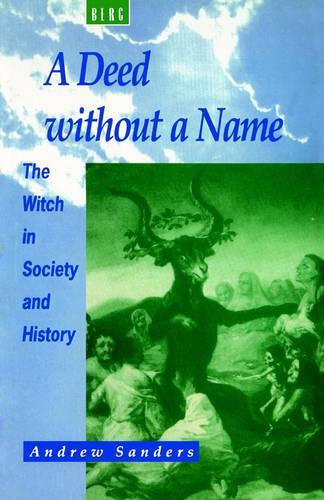
A Deed without a Name: The Witch in Society and History
(Paperback)
Publishing Details
A Deed without a Name: The Witch in Society and History
By (Author) Andrew Sanders
Bloomsbury Publishing PLC
Berg Publishers
1st September 2010
United Kingdom
Classifications
General
Non Fiction
Satanism / demonology
Anthropology
133.4309
Physical Properties
Paperback
244
Width 138mm, Height 216mm, Spine 13mm
Description
Macbeth: How now, you secret, black, and midnight hags What is't you do Three Witches: A deed without a name. Macbeth, Act 4, Scene I What lessons can we learn from witch beliefs and witch-hunts in traditional societies and in earlier times This fascinating cross-cultural survey of witchcraft aims to provide undergraduate students of anthropology and history with a comprehensive introduction to the figure of the witch. Case studies of witch-hunts in a broad range of societies -- from medieval Europe to America and tribal Africa -- demonstrate how those individuals who are perceived as a threat to the existing power structure are most vulnerable to being labelled a witch. The author argues that the process of 'labelling' witches has not changed and is used in western societies even today for scapegoating minorities and other groups such as people with AIDS.
Reviews
'Given that many classics in this field are out of print, if one were currently teaching an undergraduate course in anthropology which included the topic of witchcraft, this book, because of its scope and ease of reading, could prove a relatively inexpensive and convenient way to get students to start thinking about key issues of evil in society, power and symbolism, scapegoating, and the like.' MAN 'This book will serve admirably as an overview of what can at times seem a vewildering array of ethnographies, histories and sociological analyses. It will be very welcome to the undergraduate student whom the author has in mind, and other researches will find its includsion of recent work on witchcraft and its extensive bibliography of considerable value.' Social Anthropology 'A useful volume.' Anthropos 'A book which is interesting and especially welcome for its interdisciplinary approach.' Continuity and Change
Author Bio
Andrew Sanders University of Ulster at Coleraine
